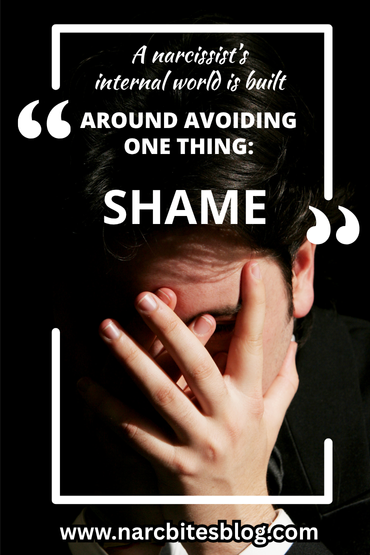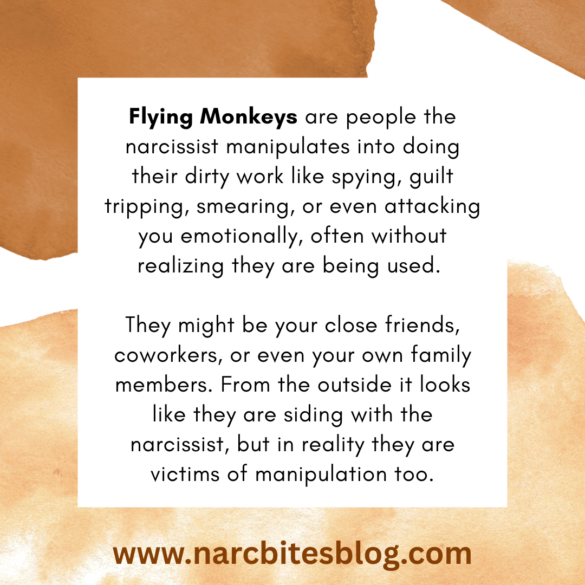Have you ever been blamed for something that clearly wasn’t your fault? Ever been called jealous, selfish, or dramatic—when you were simply expressing a need, a boundary, or a reaction to something that legitimately hurt? And deep down, did it leave you questioning yourself, even though you knew you hadn’t done anything wrong? That, my friend, might not just be gaslighting. It might be projection.
And when a narcissist uses it, it becomes something even more insidious: a method of control.
What Is Projection, Really?
In psychology, projection is a defense mechanism—an unconscious strategy where someone attributes their own unacceptable feelings, thoughts, or impulses to someone else. It’s like holding up an emotional mirror, but aiming it away from themselves.
Let’s say a narcissist feels insecure but can’t admit it. Instead of dealing with that feeling, they accuse you of being insecure. If they’re feeling angry, they’ll say you’re too aggressive. If they’re emotionally unavailable, they’ll call you cold.
It’s not conscious. It’s not strategic in a Bond-villain kind of way. But it is controlling.
Because now, you’re on the defensive. You’re justifying. Explaining. Apologizing. And while you’re busy defending yourself against accusations that don’t even belong to you, they’re maintaining the upper hand.
That’s how projection works as a tool of manipulation. It hijacks reality, rewrites the script, and casts the narcissist as innocent—or worse, as the victim.

The Emotional Sleight of Hand
Here’s the thing: projection doesn’t look like manipulation at first. It feels like confusion.
You’ll be in the middle of a conversation, and suddenly it flips. You were trying to address something painful, but now you’re defending your character. You feel accused, guilty, even ashamed—and you’re not sure how you got there.
That’s projection.
And narcissists are particularly reliant on it because their internal world is built to avoid one thing: shame.
When you carry a false self —a carefully curated image that says “I’m strong, right, lovable, superior”—then anything that threatens that illusion becomes dangerous. Even normal human flaws.
So instead of admitting those flaws, they project them.
They don’t get angry. You do. They’re not selfish. You are. They’re not cheating. You’re paranoid.
Sound familiar?
The worst part is, over time, this constant narrative shift makes you question your own emotional stability. You begin to feel like the one with the problem, and that’s exactly where the narcissist wants you: vulnerable, confused, and controllable.
Why Narcissists Need Projection
To understand why projection is so common among narcissists, we have to look deeper.
Most narcissists weren’t allowed to be fully human as children. Somewhere along the line, they received the message—directly or indirectly—that being wrong, messy, emotional, or average was unacceptable. They might have been shamed, ignored, or overpraised in a way that left no room for authenticity.
In response, they built a false self: a persona designed to gain approval, avoid rejection, and protect against emotional pain. But that self isn’t real—it’s brittle, constructed, and constantly under threat.
Criticism, vulnerability, failure—these things feel like annihilation.
So when they’re confronted with a feeling they can’t handle—like jealousy, fear, or inadequacy—they eject it. They plant it on you.
It’s not just denial. It’s survival.
Because if they admit to those flaws, they risk feeling the shame they’ve spent a lifetime running from. And that shame is bottomless.
Developmentally, this can stem from environments where emotions were punished or ignored. A child who is told “don’t be so sensitive” or “stop crying or I’ll give you something to cry about” learns that emotions are dangerous. The narcissist grows up believing that flaws are fatal, so they build a persona that is flawless—and then aggressively defend it.
Projection becomes a shield. And if that shield starts to crack? They’ll blame you for handing them the hammer.
Narcissists who use projection regularly often show signs of emotional dysregulation. They may swing rapidly between charm and rage, superiority and self-pity. These emotional extremes are a clue: they can’t manage their internal world, so they cast it onto yours.
How Projection Keeps You Controlled
Projection is more than just a psychological hiccup—it’s a power move.
Why? Because it creates an alternate version of reality where the narcissist is always right and you are always wrong. You become the unstable one. The needy one. The angry one. And they get to keep their illusion of superiority intact.
It also isolates you. You start to feel misunderstood, overreactive, and unsure of your own perception. You second-guess yourself. You internalize their accusations.
That’s the trap.
And once you’re caught in it, they can manipulate your emotions, twist the narrative, and keep you walking on eggshells—all while convincing you it’s your fault.
In some cases, the narcissist will even recruit others into their narrative. This is often done through flying monkeys—people they’ve influenced to echo and reinforce their distorted version of events. They’ll vent to friends, family, or colleagues, portraying you as the irrational or volatile one—ensuring that others mirror back the false image they’ve created.
Now, you’re not only battling their version of you—you’re battling the version others have accepted as truth.
And that? That can be devastating.
Over time, repeated projection can wear down your sense of identity. You begin to lose sight of who you were before the relationship. Your personality becomes shaped by the accusations thrown at you, until you’re living more in their narrative than your own. That’s the long-term cost.
Subtle Examples of Narcissistic Projection
- You express sadness, and they say you’re “too emotional.”
- You ask for support, and they accuse you of being needy.
- You confront their dishonesty, and suddenly you’re the one “creating drama.”
- You feel ignored, and they say you’re impossible to please.
None of these are about you. They’re reflections of the feelings they can’t bear to face within themselves.
And when it’s covert narcissism, the projection is often wrapped in soft packaging—self-pity, passive aggression, or fake concern.
They’ll say things like:
- “I just feel like you’re never happy with me.”
- “You’re always looking for a fight.”
- “You take everything so personally.”
These lines seem harmless, but they’re precision-cut to make you question your reality.
And when you try to explain or defend, the conversation circles back to why you are the problem. The original issue vanishes, and you’re left in a haze of confusion and guilt.
Recognizing the Pattern
So how do you know it’s projection and not just a misunderstanding?
Watch for the pattern:
- Do they regularly accuse you of things that don’t fit your character?
- Do they flip situations and cast themselves as the victim?
- Do you often walk away from conversations feeling foggy, guilty, or confused?
- Do they never admit fault, even when it’s obvious?
If the answer is yes, you’re likely dealing with projection. And naming it is the first step to neutralizing its power.
Over time, the more aware you become, the faster you’ll recognize the script. It will stop taking you by surprise. You’ll learn to pause, breathe, and step back rather than diving into the narrative they’re spinning.
And if you begin to journal these moments, over time you’ll start to see a pattern emerge. That pattern is power—because it lets you predict their next move, instead of being derailed by it.
What You Can Do Instead
You don’t need to argue. Or defend. Or convince them of the truth.
Because here’s the hard truth: someone who needs projection to function won’t easily let go of it. It’s stitched into their identity.
But you can protect yours.
- Stay anchored in your truth. Just because they say it, doesn’t make it real.
- Resist the bait. You don’t have to respond to every accusation.
- Document things when needed. Especially in high-stakes or co-parenting situations.
- Limit emotional exposure. Don’t hand your vulnerability to someone who weaponizes it.
- Seek grounded mirrors. Talk to people who reflect you accurately—not through a narcissist’s lens.
The more you identify their projection as theirs, the more power you take back. It’s not about winning an argument—it’s about knowing who you are without their distortion.
Because if they need to make you the villain to avoid their own reflection, it says more about their inner world than it ever will about yours.
And no matter how many times they try to hand you their emotional baggage—you don’t have to carry it.
If you feel confused and start doubting your own thoughts, this might help.
Narcissistic abuse teaches you
to question your own reality…


